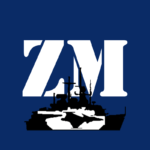Through the social media channels of the Department of State, the United States government confirmed the sale of new F-16 Block 70 fighters to equip the Turkish Air Force. The news definitively closes a military equipment sale operation fraught with ups and downs between the U.S. and Turkish governments.

For years, the Turkish government had been requesting the purchase of new F-16 Block 70 fighters from the United States, along with modernization packages for their existing fleet of Fighting Falcon Block 50s. Tense relations with Greece, the acquisition of S400 air defense systems from Russia, opposition from key members of the U.S. Congress, and Turkey’s expulsion from the F-35 program led to prolonged and stalled negotiations. Finland and Sweden’s entry into NATO, which required unanimous approval from alliance members, was one of the cards Turkey played to unlock the operation.
With this background and with the approval of the Turkish government and parliament for Finland and Sweden’s NATO accession, in early January, the United States government authorized the sale of 40 new F-16 Block 70 fighters, along with 79 new modernization kits for Turkey’s F-16 Block 50s, valued at $23 billion.
Additionally, the operation authorized by the Department of State includes the provision of a significant armament package for the Turkish Vipers, consisting of: 952 AIM-120C-8 AMRAAM and 401 AIM-9X Block II air-to-air missiles, as well as AGM-88E anti-radiation missiles, AN/AAQ-33 SNIPER targeting pods, GBU-39/B glide bombs, among other components.
While the Department of State’s June 5 statement does not provide further details, the confirmation of the sale implicitly signifies approval from the U.S. Congress and the forthcoming formalization of a contract with Lockheed Martin. As of today, the first F-16 Block 70s destined for the air forces of Bahrain and Slovakia are rolling off Lockheed Martin’s production lines in Greenville, South Carolina, marking the beginning of Viper production for the Bulgarian Air Force. Progress is also being made in modernization programs to the mentioned standard, as evidenced by cases in Taiwan and Greece, which have been carried out through local companies with assistance from the U.S. firm.



Finally, while the modernization kits are not mentioned, this Block 70 upgrade program, based on the January authorization, will be carried out by the Turkish Aerospace Industries (TUSAŞ). This is because the Turkish aerospace company has extensive experience in assembling F-16s acquired in the 1980s, as well as manufacturing components for the fighter and implementing upgrade and modernization programs, such as ÖZGÜR for the Block 30 Fighting Falcons.
*Photographs used for illustrative purposes.
You may also like: Details are emerging about Turkey’s future Navy aircraft carrier












